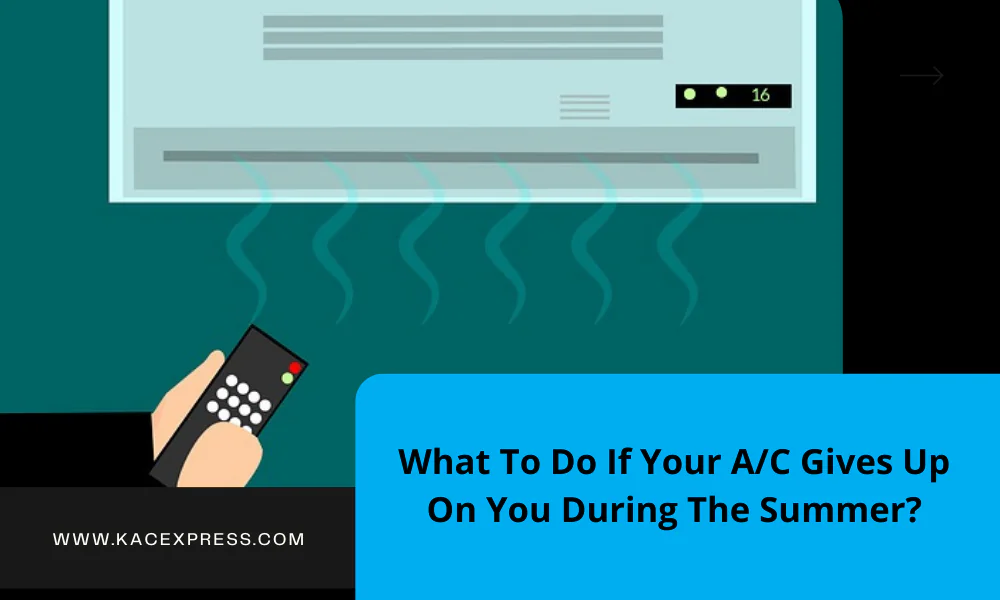There’s never a good time for your air conditioner to go down, and it’s certainly not something you want to spend money on. The famed Texas heat, on the other hand, is at its zenith and shows no signs of abating anytime soon, making air conditioning a must-have for everyone.
Our local industry experts have provided their top suggestions for when an A/C system fails to give you some ideas on what to do if you find yourself in a situation where your A/C system fails.
How to Tell If Your Air Conditioner Needs to Be Replaced
A home that isn’t getting properly cooled is the first clue that an A/C unit is failing. If you set the temperature to a specific number, such as 70, and your air conditioner doesn’t reach that temperature, it could mean something is wrong.
In this instance, it’s best to avoid attempting to solve the problem on your own because you risk injuring yourself or exacerbating the condition. We advise that you contact an HVAC specialist as soon as possible and that you pick someone who has extensive field experience and required training to effectively diagnose and resolve your problem.

Should you repair or replace it?
When you realize your air conditioner isn’t working, you’re confronted with another dilemma: determining whether to repair it or replace it. Should you repair your current device or just buy a new one? In most cases, older units require frequent maintenance, which can be both costly and bothersome over time. A new system will not only save you money on repairs, but it will also be much more energy-efficient, lowering your utility expenses dramatically.
What can you do to keep the A/C healthy in summer?
There are a few things you can do so let’s get started
1. Hire a professional to do annual maintenance checks
Finding a trustworthy HVAC firm to clean and examine your system on a seasonal basis is the finest thing you can do. While the rest of the suggestions on this list can help things run more smoothly, no one knows A/C units like the pros. Before you end up with a faulty air conditioner at the hottest time of the year, experts can help you identify and diagnose potential problems.
If you plan maintenance long ahead of peak season, you may be able to receive a better deal.
2. Clean and replace your filters regularly
Taking care of your filters is arguably the simplest and most effective way to maintain your air conditioner in good shape. Take note of the type of filter that’s best for your air conditioner and follow the cleaning or replacement instructions carefully.
3. Make sure the area around an outdoor unit is free of obstructions
Debris, plants, long grasses, and weeds can all obstruct airflow, preventing your air conditioner from performing at its best. Maintain a clean environment around the system to ensure that nothing gets in the way of it working.
4. Limit the amount of time you open and close your doors and windows
While a summer breeze is pleasant, an air conditioner works by sensing the ambient air temperature and cycling on and off to bring the air temperature to the desired degree. When you open and close windows and doors frequently, the temperature inside your home rises or falls in response, and your system has to work harder to keep up.
5. Seal any gaps that could allow cold air to escape
A tire with a gradual leak requires more air all of the time, and the same is true when it comes to cooling your home. If there are any cracks or gaps in your walls, doors, or windows that allow air to escape, your air conditioner will have to pump more cool air out to compensate for the air that is escaping through those flaws. To avoid cool air leakage, make sure you use caulking, weather stripping, and insulation as needed.
6. Allow the unit to rest while you are away
There’s a discussion about whether it’s best to keep your air conditioning at a constant setting all year or raise it to a higher degree when you’re not at home. The truth is that maintaining a stable temperature when you’re at home saves the most money and energy while allowing your system to relax while you’re away.
When you’re at home, set your thermostat at 78°F, and turn it up several degrees higher when the house is vacant. If you have trouble remembering to adjust your thermostat every time you leave and return, consider investing in a programmed thermostat that adjusts itself according to the times and settings you choose.
7. Make use of your ceiling fans
If you rotate the blades clockwise, you can guide airflow downhill and prevent hotter air from flowing up and alerting the A/C unit to turn on, allowing you to set your thermostat a degree or two warmer than you might have been able to stand otherwise.
8. Check and clean vents regularly
Cleaning your vents ensures that no dust or debris is obstructing the free passage of air. If you leave vents open in rooms, close the doors so the room achieves the required temperature faster because the cooling area is smaller.
9. Purchase window tinting or film
Mitigating the effects of the sun, tinting your windows, or putting a film can help keep your home cooler. If the sun shines on your homeless, you can set your thermostat a few degrees higher, and your system won’t have to work as hard to adjust for changes caused by the sun.
10. Indulge in refreshing drinks and beverages
Drink plenty of water and nibble on nutritious, cold foods like fresh fruit or vegetables and hummus. These solutions not only keep you cool from the inside out, but they also keep you from using the oven, which generates heat that your air conditioner has to struggle against.


0 Comments